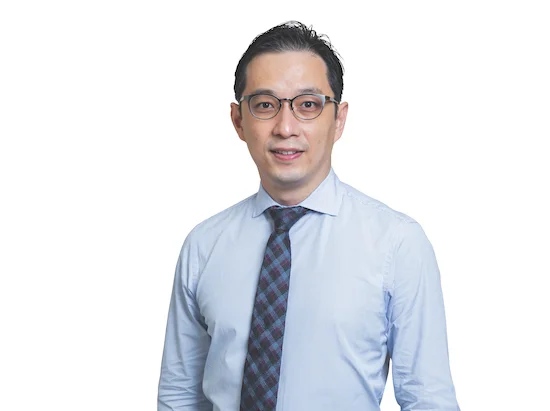News & Articles

Up Close & Personal With Dr Wong Siew Wei

Tell us about yourself. Why did you choose to become a medical oncologist?
I studied medicine at the University of Melbourne and went on to complete my specialty training in medical oncology in Australia. I decided to go into this field because I find medical oncology a very humbling specialty. Cancer can affect people of all ages and backgrounds. A good medical oncologist can make a huge positive impact in multiple domains of a patient’s life that have been affected by a diagnosis of cancer.
Tell us more about your specialisations.
I treat common cancers such as lung and gastrointestinal cancers, but my main interest is in genitourinary cancers such as prostate, kidney and bladder cancers.
Genitourinary cancers form a significant proportion of cancer diagnoses in Singapore and globally. Over the past 15 years, there have been very exciting advances in the field that are transforming patient outcomes. Cure rates are increasing in high-risk early stage genitourinary cancers. Patients with Stage 4 genitourinary cancers are also able to live longer without compromising on quality of life.
In general, the field of oncology is advancing rapidly, so I find it satisfying to be in a position to bring these advances to my patients.
What does your typical day at PCC look like?
I usually start my day by having breakfast with my family. At work, I spend most of my time in the clinic as a majority of cancer treatment and supportive care can be delivered in an outpatient setting. If I have patients who are hospitalised, I tend to review them earlier in the day so I can organise their care needs. In the late afternoon when it is quieter, I spend my time getting up-to-date by reading cancer-related news.
With every new job comes new challenges and new opportunities for me to improve further. I always look forward to what positive outcomes I can potentially bring to my patients.
How would you describe your relationship with patients?
As a doctor, I believe an open and honest relationship is very important in building a patient’s trust. This will allow me to guide them in making the best medical decision for themselves. I want my patients to feel that I am always available and approachable when they need my help.
What are your hopes for the future of cancer treatment?
Recent exciting advances in cancer care include precision medicine, where the right drug is selected based on specific driver mutations present in a patient’s individual cancer; and immunotherapy, where the body’s immune system is harnessed to keep the cancer in check, sometimes for an extended period of time.
Active research on how to ‘right-size’ cancer treatment will further refine the delivery of the best treatment for each patient. This will entail adopting advanced diagnostics and imaging tests to prognosticate who will benefit from additional treatment, and who can safely avoid treatment.
Overall, I hope there will be further progress in the early detection of most cancers, ideally through simple, non-invasive and cost-effective screening tests.
What advice would you give your future patients?
To lower general cancer risks, everyone should actively embrace a healthy lifestyle by incorporating regular exercise, a balanced diet, smoking cessation, avoiding excessive alcohol intake, and maintaining a normal BMI into your daily routine.
At an eligible age(s), individuals should undergo routine screening such as pap smear, mammogram and colonoscopy. Prostate-specific antigen (PSA) screening test, while controversial, should be discussed with your doctor, especially if there is a family history of prostate, breast, ovarian or pancreatic cancers.
Lastly, anyone who feels unwell for more than a short period of time should consult a doctor early. Cancer is a treatable condition and there is hope even when a cancer is diagnosed.
| POSTED IN | Up Close and Personal |
| TAGS | breast cancer, cancer doctor stories, cancer latest breakthrough, colorectal cancer, kidney (renal) cancer, new ways to treat cancer, reduce cancer risk, stage 4 cancer |
| READ MORE ABOUT | Colorectal Cancer, Kidney Cancer, Lung Cancer, Prostate Cancer |
| PUBLISHED | 01 February 2022 |
